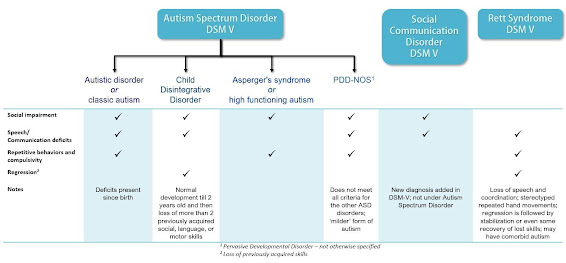Autistic community- bringing positivity in society
Autistic community- bringing positivity in society
(By Shubhangi Paliwal )
 |
| Image By:- Sukriti Singh |
It’s a disorder, not a disease. Don’t judge it, but accept it.
In 2005, by Aspies for Freedom, the first Autistic Pride Day was celebrated and soon became a global event that is celebrated publicly.
During gay pride and LGBTQ events, a rainbow flag is used highlighting a white infinity symbol on a tricolor background.
In medical terms, autism is a “neurological disability”. This means that autistic minds are unique or being autistic, they experience everything very different from others. Autistic people face other people's negative attitudes about autism and a lack of support and kindness.
Autism spectrum disorder (ASD)
It is a mental disorder of the neurodevelopmental type. It includes autism and Asperger syndrome.
People on the autistic spectrum usually experience difficulties with social communication, interaction and may exhibit restricted repetitive patterns of behavior, activities, or interests. Symptoms are identified between one and two years of age. Long-term problems may involve quandaries in performing daily tasks, creating and preserving relationships, and managing a job.
Risk factors involve having a family history of autism, an older parent, and certain genetic conditions. It is estimated that between 64% and 91% of the risk is due to family history. The diagnosis is based on symptoms. Men are diagnosed four times more than women.

Treatment efforts are generally individualized and can include:-
- Behavioral therapy
- The teaching of coping skills
- Medications can be used to try to help improve traits.
- Evidence to support the use of medications.
The term “spectrum” refers to variation in the type and severity concerning symptoms. Those in the moderate range may function independently, while those with critical symptoms may need substantial support in their day-to-day lives.
There are many autism-related events and celebrations including Autism Sunday, World Autism Awareness Day, Autistic Pride Day, and World Autism Awareness Day is an internationally recognized day on 2nd April, supporting the state’s member of the United Nations to take measures to raise awareness about people with autistic spectrum disorders including autism. It was introduced by the United Nations representative of Qatar and designated by the United Nations General Assembly.
World Autism Day is one of seven approved health-specific UN Days. Organizations all around the world come to help in things like diagnoses, research, treatment, and acceptance for those with a developmental path struck by autism.
Autistic Pride Day Aspies for Freedom initiative raise awareness among people.
- Autism rights perspectives
- Autism is a disability, not a disease
- Autism is a spectrum
- Autism did not need to be cured
- Autistic people have their own culture.
Autism Symptoms
Common symptoms of autism, but non-autistic children may exhibit some of these behaviors:
- Rocking, spinning, or other repeated movements
- Avoiding physical contact
- Avoiding eye contact
- Spinning, repeated movements delayed speech development
- Repetitive speaking of words or short phrases
- Disability to cope with minute variations in a daily routine
- Limited or no interactions with peers
- Researchers still have not reached an agreement regarding their specific causes
Autism causes may include high parental age at the time of the birth of the child, maternal prenatal medication use, gestational or diabetic bleeding.
Doctors and scientists are not sure of the causes of autism many organizations like Autism Speaks have advocated and Autism Research Institute researching a cure. Wishing that an autistic person be cured is equivalent to wishing that they would die.
Associated Medical & Mental Health Conditions
- Autism can affect the whole body
- Cognitive problems (such as difficulties with attention, concentration, and central coherence)
- Developmental/Neurological conditions
- Gastrointestinal problems Inc. constipation, diarrhea, and indigestion.
- Genetic conditions
- Learning disabilities (although many individuals with autism have an average or above-average intellectual ability)
- Mental health problems (depression, anxiety, and obsessive compulsions).
- Major challenges including basic skills (such as standing upright, such as holding a pencil between their fingers and thumb).
- Sensory problems (such as hearing and sound sensitivity, visual troubles).
- Functional and Adaptive behavior (such as sleep problems or eating).
The study identified risk factors for developmental problems, such as serious childhood illnesses, home birth, and low birth weight.
While we can't prevent having a child with an autistic disorder, we can increase our chances of having a healthy baby by doing these lifestyle changes: regular check-ups, eat well-balanced meals, and exercise/Meditate. Make sure to have great prenatal care and take all advised vitamins and supplements.
Disclaimer:-
The opinions expressed in this article are the personal opinions of the author. The facts and opinions appearing in the article do not reflect the views of Light de Literacy and LDL does not assume any responsibility or liability for the same.






Comments
Post a Comment
Thanks for reading, drop your valuable comments & feedback...